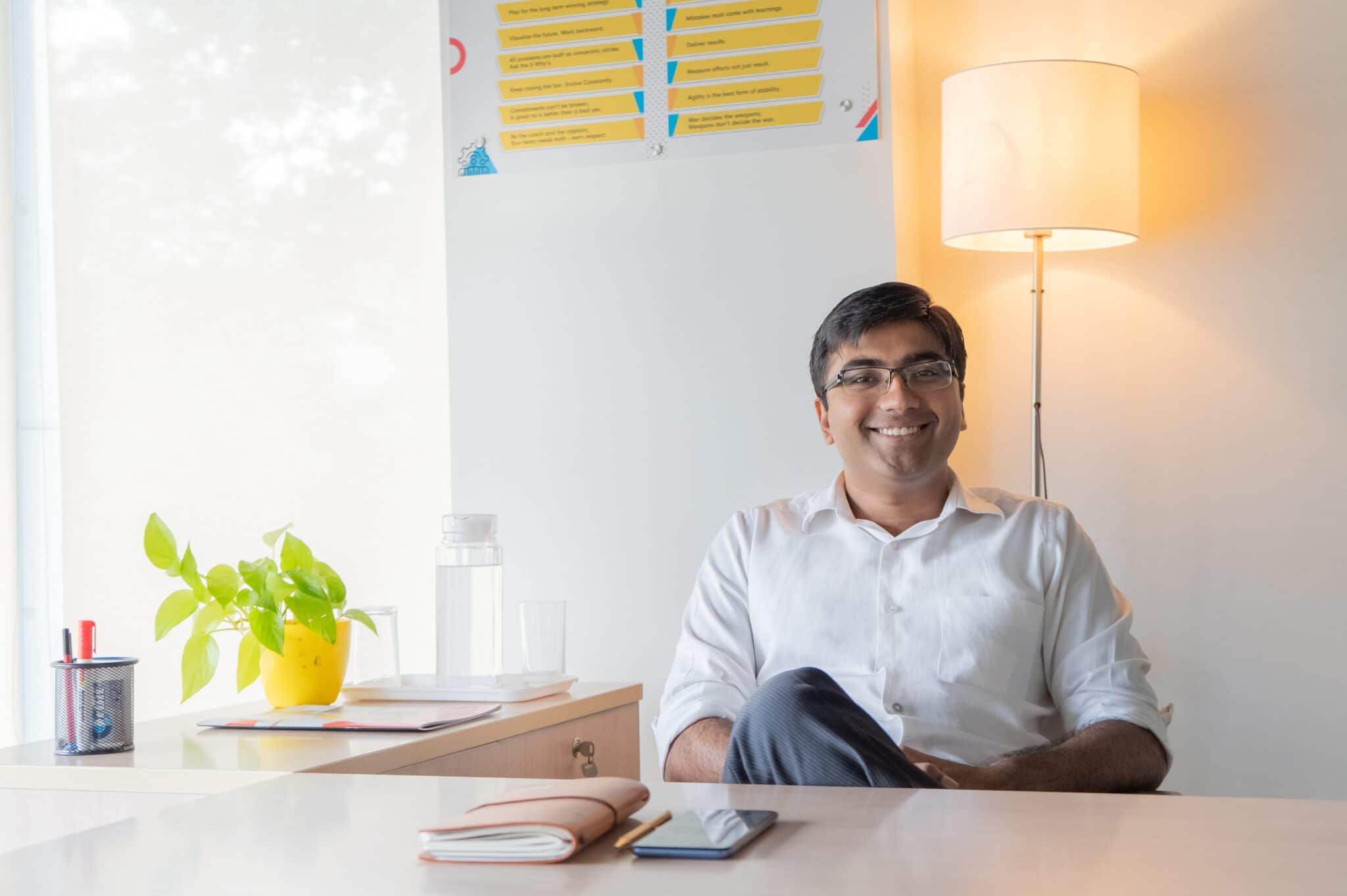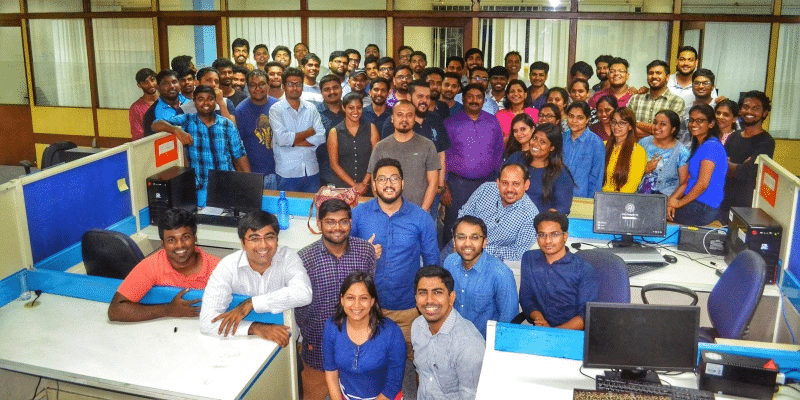A good ‘customer experience’ is always crore to the success of any business. Not only has Zolostays has tried to adhere to this fundamental principle but over the years has made this principle an integral part of its work culture. As a result, today Zolostays is at the pole position in the nascent yet highly competitive co-living market.

The Bengaluru based company has already set new benchmarks in improving the ‘accommodation quality’ in the co-living market. But it is not done yet with redefining the living experience for India’s nomadic millennials, who are conspicuously desperate to seek freedom from the substandard PG accommodations.
Zolostays’ co-founder Nikhil Sikri along with his two other co-founding partners as well as the entire team is always on a work mode to resolve the prevailing pain-points in the co-living market. Today the company already operates nearly 20,000 beds in almost 12 cities and plans to expand to 50,000 beds in near future.
The company’s expansion plan has already got a massive boost after it recently raised $30 Mn in a series B funding round. Not to mention it is already in talks to raise whopping $100 Mn from investors. If this funding round does fructify then it will be one of the biggest funding rounds in India’s co-living industry.
Techpluto caught up with Zolostays’ co-founder and CEO Nikhil Sikri in an exclusive interview. Sikri has shed light on the funding prospects, future plans, challenges facing India’s co-living industry and many other aspects.
Q: Zolo Stays raised $30 Mn in January in a Series B round. How is the company going about utilizing this latest capital infusion?
A: Since the last round of funding, we’ve added thousands of beds to our existing properties and expanded to other cities, especially in the NCR region. Most of the funding is going towards the growth of the Zolo community.
Q: Can you please shed light on some of the facilities and amenities that residents get to enjoy at Zolo Stays’ co-living spaces?
A: Zolo is creating a community-centred environment for our residents that not only provides privacy in living arrangements but also promotes social contact. The curated community fosters inclusivity that enables tenants to meet a variety of other individuals and expand their network. Zoloites can also avail flexible and shorter lease terms, reduced security deposit and zero hassles with housekeeping, payment of utility bills, maintenance, furniture and fixtures, and renewal of lease contracts.
Zolo Stays has a three-tiered product offering – Zolo Standard, Zolo Select and Zolo Scholar. Zolo Standard is affordably priced sharing accommodation in standalone buildings for students and working professionals at entry and mid-level located near corporate hubs and residential clusters. Zolo Select is a customised offering designed for working professionals at higher income brackets. These are mostly premium single occupancy accommodations with amenities such as swimming pool, club house and entertainment zones located inside premium and luxury residential townships. Zolo Scholar provides off campus accommodation for students with facilities and services designed specifically for their needs, supporting minimal lifestyles at an affordable budget.
Q: To develop affordable co-living spaces, Zolo Stays has forged a partnership with several real estate developers including big names like Godrej Properties & Shapoorji Pallonji Real Estate. Can you please walk us how difficult or easy it was to bring these real estate developers on board?
A: It has been a difficult journey onboarding these esteemed real estate developers. We were new players, so we had some convincing to do. Plus, these giants are more relationship-driven, it took more than one meeting to get them on board. We had references from our earlier projects where we’d delivered on our promises before time. That helped us close our deals with the afore mentioned developers.

Q: Reports are already rife in the media that Zolo Stays is soon planning to raise $100 Million in series C round. Your comment about the same?
A: Yes, we are looking to raise $100 Million in Series C round, we can’t reveal more details as of now, but the funding will go towards strategic expansion to other cities. Zolo Stays plans to expand its capacity to nearly 200,000 beds by FY 2021. It plans to foray into new markets such as Chandigarh (Tri-City), Nagpur, Kolkata, Indore, Ahmedabad with new product segments such as investment sales, couple’s accommodation and geriatric living through new avenues such as manchise model.
It also plans to make the Zolo community more irresistible through alliances, events and value-added services. Rolling out new community focused product features and applying AI/ML and IoT to specific use cases for improving customer experience is also on the cards.
Q: Where does the company currently stands in terms of profitability and revenue? Can you please share some stats with regards to the same?
A: We will be achieving a GMV annual run rate of 50+ million $ by calendar year end 2019, growing at 430% CAGR
Q: Today Zolo Stays is already India’s largest co-living brand. But where do you see this company in the next 2-3 years from?
A: With major players coming into the scenario, we are inspired even more to stay at the top. We plan to expand to more cities every quarter and focus on the experience of our customers rather than just expanding and increasing the quantity over quality.
Q: How intense is the competition in the co-living market especially following the entry of deep-pocket players like Oyo Rooms?
A: The competition has always been tough; we weren’t the first one here and we sure aren’t going to be the last. Others can only dilute the market share, but we are more focused on our goals and working toward them.
Q: What is the size of India’s co-living market and how do you see the market growth in the coming years?
A recent report by JLL indicates that the supply of beds by organised co-living players is expected to increase to about 541,000 across the top seven cities by 2023, with Delhi NCR and Bengaluru accounting for more than 50% of the cumulative capacity. By 2023, India’s urban co-living market is set to become an INR 1-trillion opportunity.
Q: Do you see any foreseeable challenges for India’s co-living market that can possibly hinder its growth?
A: Co-living is a relatively new concept in India, but the millennial generation has picked it very quickly. Traditional PGs are evolving too. The whole industry is after providing a unique experience that you do not get while living in a regular PG or a rented flat. There are a few roadblocks but in the longer run, co-living is a viable model for business and for the customers as well.
Q: Looking back at your rich entrepreneurial career, any piece of advice that you’d like to give to all the budding entrepreneurs out there.
A: All entrepreneurs should be able to identify the challenges in their respective fields and focus on solving the problems rather than just focusing on one aspect, be it money or business model. More often than not, startups that do not solve problems in the longer run, do not last for long. At a personal level, grit, emotional maturity and flexibility goes a long way in managing a start-up

